Hollywood & Spine Archive: A Box of Scraps
An overview of the novelization to IRON MAN, originally published in May 2019.
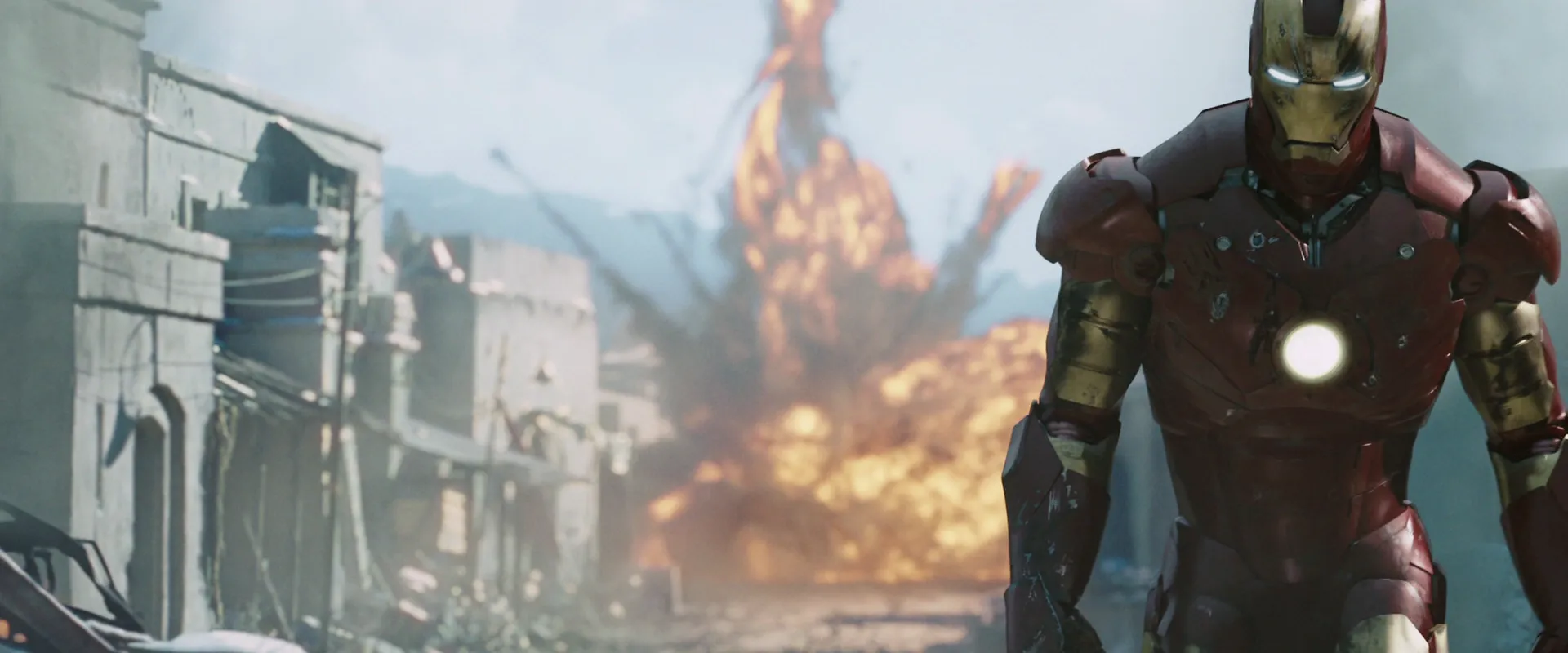
Re-reading this with the benefit of hindsight was nuts. Avengers: Endgame had just come out, and - COVID aside - we had no idea just how the public perception of the MCU was going to warp as it overexpanded into TV and movies with overblown scale and stakes, that never reached the highs of the Infinity Saga. (As someone who was never a comic book nerd, I successfully swore off the films after a dire screening of Ant-Man and The Wasp: Quantumania.)
Also, I don't want to tip my hand too much - I'm getting into it elsewhere on the Internet in a few weeks - but the Iron Man novelization represents either the end of one era of novelizations or the beginning of the considerably shrunk one we seem to live in. I'll have more to say about this later, but I'd as always love to hear what you think about it. (Originally published 5/28/2019)
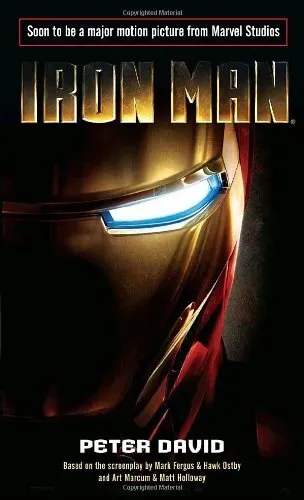
Iron Man by Peter David (based on the screenplay by Mark Fergus & Hawk Ostby and Art Marcum & Matt Holloway) (Del Ray, 2008)
The pitch: Billionaire industrialist Tony Stark suits up in an extraordinary exoskeleton of his own creation to fight terrorism - and, in the real world, inadvertently kicks off a world-conquering 22-film (and counting) franchise: the Marvel Cinematic Universe.
The author: Peter David is no stranger to novels, comics or adaptations. He wrote novelizations to Star Trek: The Next Generation, Batman Forever, Sam Raimi's Spider-Man trilogy and both mid-'00s films featuring The Fantastic Four and The Incredible Hulk (a comic he wrote for a pivotal, Eisner Award-winning run starting in 1987). He also co-created the delightful Nickelodeon series Space Cases, earning him considerable cred among '90s kids.
The lowdown: Even the biggest all-consuming entertainment franchises in this late-capitalist era of pop culture aren't a sure thing. That's certainly the case for the Marvel Cinematic Universe, now spanning 22 films and $21.2 billion in gross earnings, most recently with last month's epoch-closing Avengers: Endgame. It owes its success mostly to incredible planning (courtesy of savvy Marvel Studios president Kevin Feige) and dumb luck (said studio retaining film rights to members of the comic titan's core Avengers group, the eventual purchase of the brand by The Walt Disney Company).
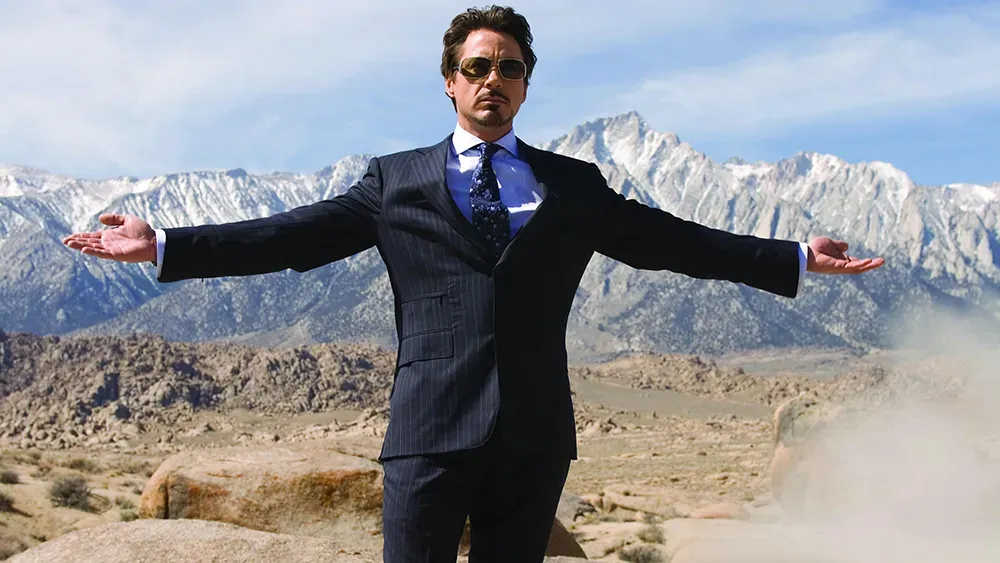
Of course, building the foundation to this universe required some bursts of creative inspiration, too. Director Jon Favreau was a fine comedic actor turned sturdy comedic helmer. The script was penned by two pairs of screenwriters with respective experience in comic adaptations (Art Marcum and Matt Holloway, who wrote another Marvel picture that year, Punisher: War Zone) and sci-fi/drama (Mark Fergus and Hawk Ostby, who earned an Oscar nod for Children of Men). Of course, the wild card was Robert Downey, Jr. in the lead role: sure, he had the charisma to play a devil-may-care weapons maker-turned-global protector, but he was only recently sober after years of drug addiction and a subsequent string of arrests.
Just as there were few hint of the universe to come in Iron Man the film (save the all-important post-credits cameo by Samuel L. Jackson as S.H.I.E.L.D. director Nick Fury - more on that later), the Iron Man novelization is a serviceable, self-contained story that sticks close enough to the source material without playing too much in Marvel's sandbox - which is kind of funny, considering Peter David's pedigree among comic fans. Outside of the hints that Tony's father Howard died under tragic circumstances; a passing, nameless reference to The Mandarin; and Stark's disquieting penchant for alcohol, there isn't much to connect the film's story heavily to the comics. (Can you imagine if there was? A Marvel Cinematic Universe dreamed into being with the help of an established comic book writer like David might have made some of the average films in the series more intriguing.)
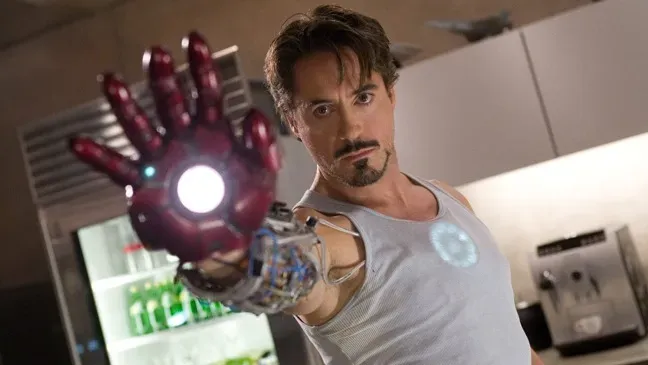
The cutting room floor: The Iron Man novelization has a couple notable deviations from the finished film, some of which make the story richer and some that are mildly confusing in their absence. Getting more history on Tony's relationship with his right hand girl Pepper Potts is nice; it's revealed here she gets her nickname after threatening a roughshod security guard with pepper spray in an attempt to correct some crucial math in Stark's presence. Also appreciated is how Tony manages to get the Iron Man suit to Gulmira to liberate a village from The Ten Rings: he sets out under the guise of a debauched party he hosts in Dubai. (This scene was filmed, but cut.)
There's also some crucial set-ups and pay-offs with Stark's friend, Col. James Rhodes. In the book, Rhodes personally leads the mission to find Tony when he's captured at the beginning of the film, and rebuffs the Stark Industries boss for giving up weapons manufacturing before Tony can offer him the job of test-piloting his Mk. II armor. (Stark bemusedly considers Rhodes' place as part of the "war machine.") It all culminates with Rhodes not just looking at the prototype armor before the final battle begins (as in the film) but trying it on, only to struggle with fitting the helmet over his head!
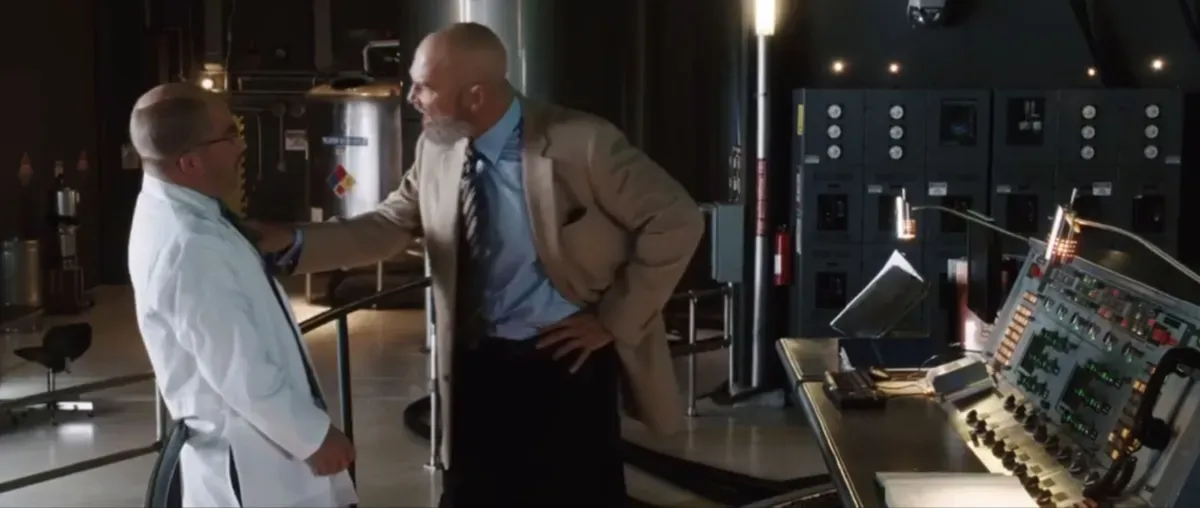
Some things from the picture didn't make the novelization, either. There's small comedy bits that wouldn't have made sense in prose (the goofy robot in Tony's lab), and portions excised to streamline the action (Tony never encounters the "icing problem" on his Iron Man test flights in the book, and so never uses it to help defeat the villainous Iron Monger). But the most shocking omission might be Fury's cameo at the very end, fully keeping the story away from The Avengers. (David's novelization of 2008's The Incredible Hulk similarly lacks Stark's Avenger-friendly post-credits cameo, though he's never indicated if those omissions were aesthetic choices or meant to hide the films' biggest secrets.)
The last word: It's a testament to how strong the first Iron Man film (and its prose adaptation) is that it wisely avoids the referential thrills (cheap or otherwise) that sometimes come with universe building. Worth a read if you yearn for the days where a Marvel movie didn't require hours of viewing beforehand to "get."
